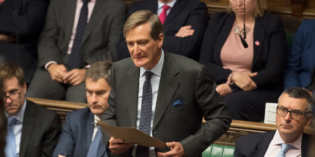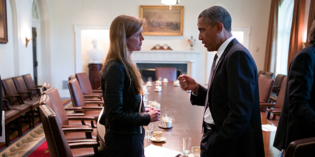
Book Review | Capitalism, Alone: The Future of the System That Rules the World by Branko Milanovic
If capitalism has triumphed to become the sole socio-economic system globally, what are the prospects for achieving a fairer world? In his new book Capitalism, Alone: The Future of the System That Rules the World, Branko Milanovic examines the historical shifts that have led to capitalism’s dominance and looks at the varieties of capitalism at work today to propose choices to ensure that capitalism delivers a more equitable future. Roberto Iacono praises this remarkable book as possibly the author’s most comprehensive opus so far.

Be careful what you wish for: Brexit and the call for another referendum
Whether or not to hold a referendum on Brexit is a clear dividing line between parties in the upcoming UK general election. However, Philipp Harms and Claudia Landwehr argue that support for such a measure is often largely contingent on expected outcomes, and so can entrench political divides. More deliberative democratic innovations might therefore be better suited to resolving the UK’s political conflicts.

General election 2019: why school buildings need to be used as polling stations
The last time the UK held an election in December was 1923. As preparations are made for a snap election, and despite the logistical problems this might cause, Toby James explains why schools should, as usual, be used at election time, as a government minister and electoral officials clash.

The government’s refusal to release the Intelligence and Security Committee’s report into Russian activities against the UK is part of a worrying pattern of obstruction and delay
Parliament’s Intelligence and Security Committee has produced a report into Russian interference in UK politics, but it cannot be published without government approval. Andrew Defty explains that Number 10’s failure to release the report before Parliament was dissolved is the latest in a series of government actions that have hindered effective parliamentary scrutiny of the intelligence and security services. Reform to ensure the committee has greater independence from executive obstruction should be considered in the next Parliament.

NHS Citizen and what it tells us about designing democratic innovations as deliberative systems
Rikki Dean, John Boswell and Graham Smith analyse an attempt to design a systems-oriented democratic innovation: the NHS Citizen initiative. They write that, while the initiative pioneered some cutting-edge participatory design, it failed to resolve well-known obstacles to institutionalisation. They argue that similar projects must evolve strategies to meet such challenges.

Referendums can be more effective if voters can choose from several options
As the UK prepares for a second general election since the 2016 Brexit referendum, Charlotte C.L. Wagenaar demonstrates how a multi-option referendum could be a valuable tool in future to gauge more nuanced public attitudes on divisive issues. By presenting several alternatives, they can encourage votes for constructive compromises rather than blunt protest votes.

Matters of consent: the Withdrawal Agreement does not violate the Good Friday Agreement
John McGarry and Brendan O’Leary write that, contrary to the DUP’s claims, the draft Withdrawal Agreement does not violate the provisions of the Good Friday Agreement when it comes to consent. Instead, the proposals regarding Northern Ireland are reasonable and balanced.







 Democratic Audit's core funding is provided by the Joseph Rowntree Charitable Trust. Additional funding is provided by the London School of Economics.
Democratic Audit's core funding is provided by the Joseph Rowntree Charitable Trust. Additional funding is provided by the London School of Economics.